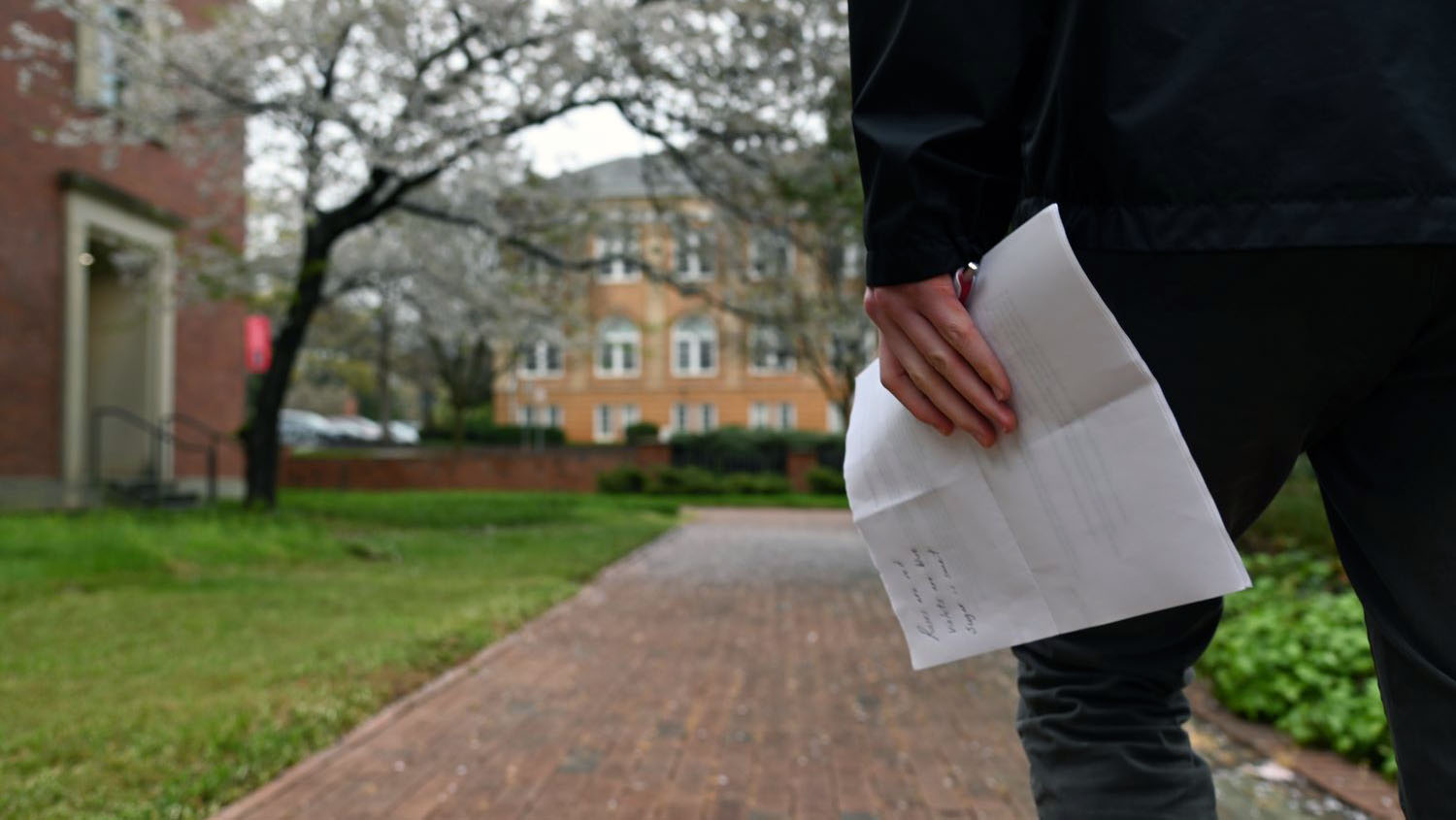Ramping Up Suicide Prevention at NC State

 Some history should never be repeated. In 2010, NC State University dealt with tragedy and heartbreak when four students independently made the decision to take their own lives. “No one can be sufficiently prepared for dealing with the suicide of a classmate, a friend, or a loved one,” said Dr. Willa Casstevens, associate professor in NC State’s Department of Social Work. “You can’t help but ask yourself, ‘Was there something I could have done? Were there clues I should have seen?’ ‘Is there anyone I could have called?’ Suicide affects all of us.”
Some history should never be repeated. In 2010, NC State University dealt with tragedy and heartbreak when four students independently made the decision to take their own lives. “No one can be sufficiently prepared for dealing with the suicide of a classmate, a friend, or a loved one,” said Dr. Willa Casstevens, associate professor in NC State’s Department of Social Work. “You can’t help but ask yourself, ‘Was there something I could have done? Were there clues I should have seen?’ ‘Is there anyone I could have called?’ Suicide affects all of us.”
The students’ deaths furthered the resolve of Casstevens and others to improve campus awareness about the risk of suicide, to increase knowledge of how and where to refer students for assistance and support, and to provide high-risk student groups with information and training on suicide risk assessment, support and referral.
“Suicide is the second leading cause of death among college students,” Casstevens says. “Students are at risk of suicide simply as a result of being in the age range of 15 to 24. And some specific student groups are at higher risk, for example, our students in sororities and fraternities, and lesbian, gay, bisexual, or transgender (GLBT) youth. So campuses need to be very intentional about their outreach and education efforts regarding suicide prevention and mental health.”
Casstevens is serving as principal investigator with Dr. Jodi Hall, clinical assistant professor in Social Work, as co-investigator, on a newly-awarded $253,200 DHHS Garrett Lee Smith Campus Suicide Prevention Grant that they hope will help change campus culture around suicide, and ultimately, change the statistics, too.
The three-year federal grant from the Substance Abuse and Mental Health Services Administration will fund education and prevention programs that emphasize how to reach out to students in distress. Two such programs, “Question, Persuade, Refer Gatekeeper Training,” (QPR) and a “Suicide Prevention Multicultural Competence Kit,” target student leaders, students who are members of at-risk groups, and faculty and staff who work directly with students.
A third program, called “At Risk for University Students,” is an online avatar-based simulation program that teaches students the common indicators of psychological distress and how best to approach an at-risk student for referral. “At Risk” will target the almost 5,000 students who enter NC State each year as new students.
“Ultimately, we are looking for a long-term shift in the university’s culture and climate – one that encourages outreach and help-seeking behaviors and that discourages prejudice and stigma,” Casstevens says. “It’s all in hopes of bringing down the number of suicides and suicide attempts both on our campus and in the community at large.”
The Campus Suicide Prevention grant is supported by the CHASS Department of Social Work, the University Counseling Center, the Health Promotion office of the university’s Student Health Services, and the GLBT Center.
note: On October 10, NAMI on Campus (that’s the NC State chapter of the National Alliance on Mental Illness) is hosting QPR Suicide Prevention Training for students, faculty, and staff. Get the details on their Facebook page.
By Kristie Demers, CHASS Communication Intern
- Categories:


